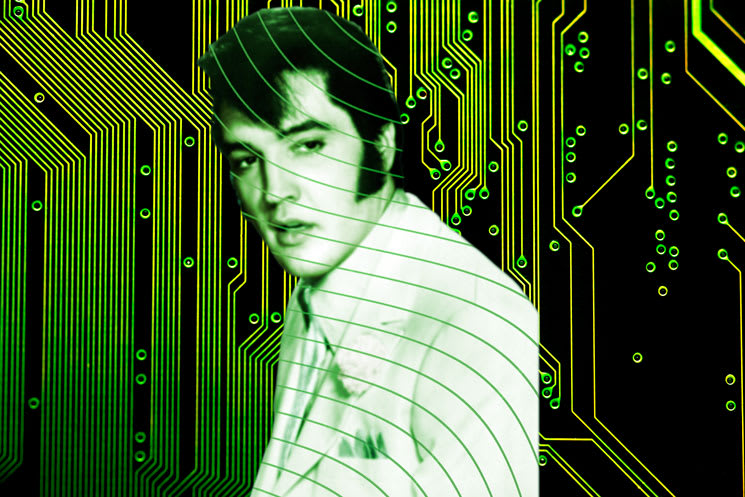Progressive politics happening? In the state of Tennessee? Stranger things have indeed happened, and today, Republican Governor Bill Lee (who generally sucks, can get fucked, etc.) signed the ELVIS Act into law — legislation that helps protect artists' voices from being duplicated by artificial intelligence (AI).
As Kristin Robinson reports for Billboard, the Ensuring Likeness Voice and Image Security Act of 2024 updates the state's old right of publicity law, which only protected one's "name, photograph, or likeness," to include protections for voice- and AI-specific concerns. The new legislation replaces the Personal Rights Protection Act of 1984, which was inspired in part by the desire to extend Elvis Presley's postmortem publicity rights.
The Governor passed the bill into law at a local honky tonk establishment during what he called the "coolest bill signing ever," which saw the politician in the company of the likes of country superstars Luke Bryan and Chris Janson.
Introduced in January by Lee, State Senate Majority Leader Jack Johnson and House Majority Leader William Lambert, the ELVIS Act has received support from musicians like Lindsay Ell, Evanescence's David Hodges, Matt Maher, Natalie Grant and Michael W. Smith — as well as the Human Artistry Campaign, a global initiative from entertainment organizations advocating for a responsible approach to AI in music.
While the Personal Rights and Protection Act only prevented the use of someone's name, photograph and likeness for advertising purposes, context does not limit liability with the ELVIS Act. Under the new law, likely any unauthorized use (e.g., in a song, a documentary, etc.) would be barred.
If you'll recall, the use of deepfake impersonation of musicians' voices really hit the mainstream in April 2023 when an AI-generated "collaboration" between "Drake" and "the Weeknd" went viral. Created by an artist called Ghostwriter, "Heart on My Sleeve" went on to be submitted for Grammy consideration — but the Recording Academy later decided that making it eligible would be kind of uncool, and the JUNO Awards followed suit.
Regulating the burgeoning technologically was also at the crux of negotiations for the writers' and actors' strikes that took place last year, as well as the ongoing dispute between TikTok and Universal.
